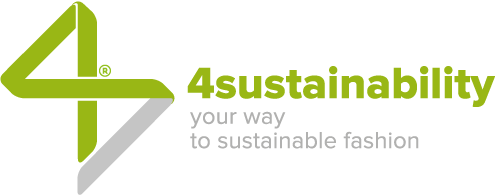Unfortunately, there is no single standard for measuring the sustainability performance of a company in terms of both processes and products, which is a fertile ground for the proliferation of ethical claims, labels, company and product certifications.
In recent years, this phenomenon has literally exploded, also due to the interest of the market in “objects” that are perceived as credibility passports and indicators of good reputation. In short, a competitive advantage.
The journey to achieve this advantage is by no means trivial, not only because it implies the adoption of behaviors consistent with given environmental, social and economic standards, but because the difficulty for businesses already begins upstream – that is to say understanding which tool, in the jungle of the existing ones, is the most coherent with their own needs.
WHAT IS THE DIFFERENCE BETWEEN THE DIFFERENT ROADS AND WHY TAKE ONE RATHER THAN ANOTHER?
The answer to this question is closely related to the goals that the company establishes for itself as priorities, therefore the first step is to link the tools to the goals in order to choose consciously, act accordingly and prevent any risk of greenwashing.
“Spot initiatives or the green collections that wink at the consumer are welcome, but it is not on this kind of projects that the sustainability of a business can be measured“, explains Francesca Rulli, Founder and CEO of Process Factory / 4sustainability® . “There is no sustainable product, more generally, without a sustainable company: it is the conversion of strategies and processes that generates sustainable products and not the opposite”.
COMPANY CERTIFICATIONS AND ATTESTATIONS
The commitment should therefore apply to both fronts: on the one hand, the implementation of a management and reporting system based on respect for ethics and the environment, on the other, product certification.
Company certifications are based on recognized standards, are issued by accredited bodies and have as their object the management system for which the company wants to offer a guarantee to the market. We cite as examples the ISO 9001 for Quality, the ISO 14001 for the Environment, the ISO 50001 for Energy, the SA 8000 for Social Responsibility.
Company attestations are voluntary statements or statements validated by third parties on sustainability performance identified by the company as priorities for communication purposes and generally built on the basis of standards. The corporate attestation par excellence is the Sustainability Report, which Process Factory produces for instance with reference to the international standard GRI (Global Reporting Initiative).
PRODUCT LABELS, CERTIFICATIONS AND ATTESTATIONS
Let’s start with the labels’ puzzle. Everything we produce, in every phase of its life cycle, contributes to environmental damage to various degree. The Integrated Product Policy (IPP) adopted in 2008 by the European Community aims to reduce just this impact.
Given the multiplicity and heterogeneous nature of the players involved in production, the IPP developed a set of voluntary and mandatory tools that can be used to achieve the goals of environmental reduction and improvement. Environmental Labels as defined by the UNI EN ISO 14020 standard, which specifies the characteristics and requirements necessary to obtain them, are one of these tools.
Environmental labels can be divided into three main categories, each with its own pluses and criticalities.
TYPE 1: UNI EN ISO 14024:2018
Eco Label, Der Blaue Engel, White Swan, Green Seal USA, Eco-Mark Japan are some known examples and belong to the Environmental Labeling for Performance Purpose category. They accompany the product and guarantee compliance with certain threshold limits established by the brand management, providing for verification by third parties. They aim to communicate to the consumer the respect for environmental performance in an absolute way.
In a broad sense, we can also include in this family the certifications / labels related to the raw materials used and the manufacturing processes adopted, including the GOTS and OCS organic certifications, the GRS and RCS recycled product certifications, the FSC certification for the forest protection, the RWS and RMS certifications for sustainable farming.
TYPE 2: UNI EN ISO 14021:2016
An example is the Mobius Cycle used in the recycled content symbol and in the symbol stating recyclability. Defined as Self-Declared Environmental Assertions, they are included in the category of Labels with an Informational Purpose. These labels are produced independently by manufacturers, importers or distributors without the need for third-party certifications. They aim to communicate to consumers the environmental improvement of products.
TYPE 3: UNI EN ISO 14025:2010
JEMAI (Japan Environmental Management Association for Industry) and ECO LEAF belong to this category, as well as the certifications / labels of EPD (Environmental Product Declaration) and PEF (Product Environmental Footprint) type. They are all included in the Environmental Product Declarations for the purpose of Full Evaluation. They show quantitative environmental information on the product life cycle, to allow comparisons between products with the same function calculated through the Life Cycle Assessment (LCA). methodology. They’re subject to independent control and can be compared with official reference standards.
Finally, product attestations are voluntary statements or statements validated by third parties highlighting the sustainability content of a product.
ETHICAL CLAIMS
An ethical claim is a slogan adopted by companies to emphasize the characteristics of sustainability – environmental but also social and economic – of their products or initiatives. Producers, importers, distributors can use it without limitations neither territorial nor of application, because in addition to products and services, the ethical claim can also refer to the company to communicate its inclusiveness or non-use of child labor.
Zero kilometer, Cruel free, Handmade, 100% green are some very common examples. It is a pity that these statements are often inaccurate or deceptive: in short, a conscious or not exercise of greenwashing.
In order to reduce these risks, the specific international standard ISO / TS 17033 has been published, which defines principles and rules for clearer, more transparent and verifiable labels. This means that certain messages will no longer be allowed from now on, unless accompanied by evidence of their truthfulness.
“Keeping up to date on existing opportunities and the latest news is not easy even for those who, like us, have been dealing with sustainability”, says Rulli. “There’s no better initiative than the others in terms of effectiveness and transparency, but it’s clear that harmonization and simplification should be our major targets: there’s no clarity in the chaos, while few shared tools would have the advantage of favoring the conversion of many companies thanks to the adoption of the same standard with a greater number of requirements”.

